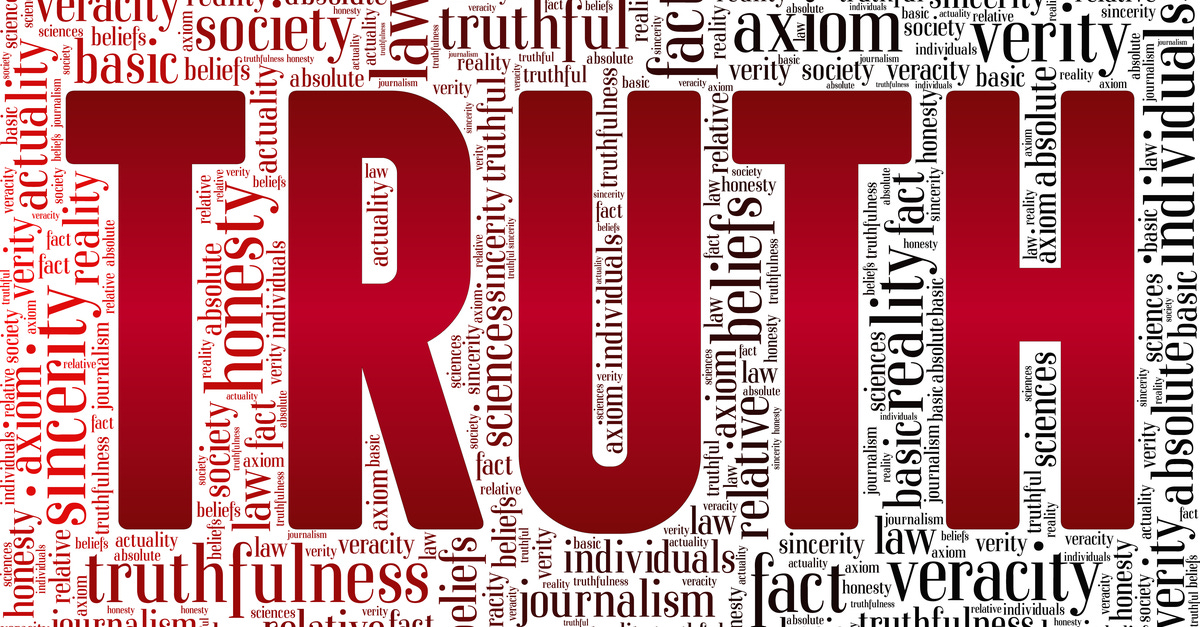E-Pluribus | January 12, 2022
Government as the arbiter of truth: a bad idea, meritocracy's demerits, and an inside look at Hollywood's illiberalism.
A round up of the latest and best writing and musings on the rise of illiberalism in the public discourse:
J.D. Tuccille: It's Dangerous to Allow Politicians and Officials to Decide What Constitutes 'Truth'
Pontius Pilate infamously blew his chance for a solid answer by walking away after asking Jesus “What is truth?”, but there are plenty of people who think they know. When those people hold government positions, J.D. Tuccille writes at Reason, they tend to use (and abuse) their power to promulgate their version(s) of the truth, which is yet another reason to limit the power of government.
"Governments realize that they are in an existential battle over who controls information, who controls the narrative, and they are waging a frontal assault against independent journalism around the world," Joel Simon, the exiting head of the Committee to Protects Journalists (CPJ), told CNN's Brian Stelter.
"This is the information age, and we are in a kind of millennial battle over who controls information," he added. "Who controls it? That's the power struggle. And so, governments recognize—repressive governments, but even democratic governments—that this is an essential tool that they need to maintain power and journalists are their adversaries."
Simon spoke after the release of a CPJ report warning of escalating attacks on journalists, demonstrating that the stakes for those who offend government officials are very high. The report found 293 reporters jailed for their work around the world, and at least 24 killed because of their efforts.
CPJ isn't the only organization recognizing that independent sources of information are under attack. Last October, the Norwegian Nobel Committee awarded the Nobel Peace Prize to Maria Ressa and Dmitry Muratov for their coverage of government conduct in the Philippines and Russia "in a world in which democracy and freedom of the press face increasingly adverse conditions."
"Free, independent and fact-based journalism serves to protect against abuse of power, lies and war propaganda," the committee added.
Read it all.
William A. Galston: A Left-Right Revolt Against the New Elites
Individualism and self-responsibility are intrinsic in American society, but concerns over privilege, equity and fairness call the concept of the US as a meritocracy into question. William Galston writes at the Wall Street Journal that we should be clear-eyed about the positives and negatives of how the meritocracy functions in the real world in order to give everyone a real shot at the promise of America.
There is much to criticize about the current version of meritocracy. Winners often believe that they are wholly responsible for their success, forgetting that they did nothing to earn the capacities with which they were endowed at birth—or the family advantages that helped them develop these capacities. And yes, it can lead to contempt for those who have achieved less, a much-resented attitude that has contributed to political polarization.
But rather than reject meritocracy wholesale, we should work harder to distinguish its virtues from its vices. On the simplest level, meritocracy stands for the proposition that jobs should go to the people who can do them best. If I need surgery, I want a surgeon with the skills to perform it. Because I don’t have the ability to judge this for myself, I must rely on the quality of the surgeon’s education and training, along with the judgment of peers and patients.
[…]
It is at the third tier of meritocracy that problems arise. Being better educated doesn’t make you a better person, nor does it qualify you to rule over those with less education. America’s founding creed teaches that all are created equal, not in talent, but in dignity and worth.
Besides, the writ of expertise is limited. Medical researchers know more about disease than the rest of us, but the maxim “follow the science” doesn’t tell us what to do. Experts can clarify the risks of catching Covid in public schools, but they can’t tell us whether to keep the schools open or shut them down. This practical judgment requires policy makers to balance competing values, a process that requires good judgment, an understanding of human nature, and a keen awareness of public opinion.
Read it all here.
Peter Kiefer and Peter Savodnik: Hollywood's New Rules
At Bari Weiss’s Substack Common Sense (just celebrating its first anniversary), Peter Kiefer and Peter Savodnik, two Los Angeles-based writers, expose the growing fear and intolerance in Hollywood in the name of diversity, equity and inclusion. Rather than fostering an atmosphere of cooperation and creativity, the “new rules” create suspicion, tension and turmoil that limit opportunities for everyone and have a negative impact on the whole industry.
Of course, Hollywood, like many industries, does have a clubiness about it. And pretty much everyone on the inside insists it should open up to those who had, for decades, been kept out. But the heavy-handed mandates, the databases, the shifting culture—in which pretty much all white men were assumed to have gotten their jobs because they had the right tennis buddies or ZIP code or skin color—raised the possibility of a new kind of clubiness. When asked whether ARRAY Crew was just replacing one kind of exclusion with another, Tobler sidestepped the question, saying the organization had sought to “amplify underrepresented professionals.”
But the result has not just been a demographic change. It has been an ideological and cultural transformation. We spoke to more than 25 writers, directors, and producers—all of whom identify as liberal, and all of whom described a pervasive fear of running afoul of the new dogma. This was the case not just among the high command at companies like Netflix, Amazon, and Hulu, but at every level of production.
How to survive the revolution? By becoming its most ardent supporter. “Best way to defend yourself against the woke is to out-woke everyone, including the woke,” one writer said. Suddenly, every conversation with every agent or head of content started with: Is anyone BIPOC attached to this?
The old-timers accustomed to being on the inside—and the (non-BIPOC) up-and-comers afraid they’d never get there—were one-part confused, one-part angry, and 10,000-parts scared.
“Everyone has gone so underground with their true feelings about things,” said Mike White, the writer and director behind the hit HBO comedy-drama “The White Lotus.” “If you voice things in a certain way it can really have negative repercussions for you, and people can presume that you could be racist, or you could be seen as misogynist.”
Read the whole thing.
Around Twitter
A thread from Shadi Hamid of the Brookings Institution on cancel culture, based on conversations with Greg Lukianoff of the Foundation for Individual Rights in Education:
Via Gabriel Malor and David French, a campus sexual assault/due process case gets a second chance:
And finally, how to get away with a conspiracy theory, via Wesley Yang:












